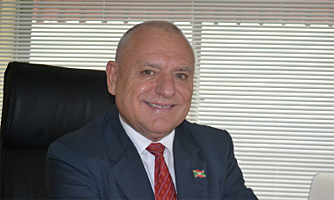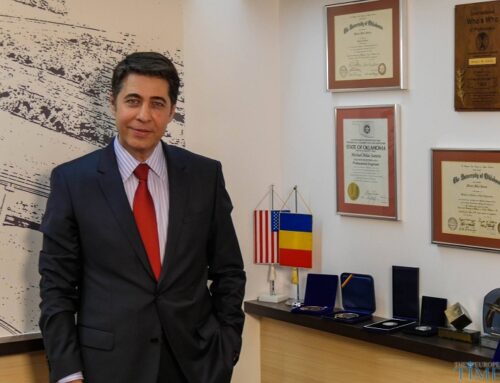
In 2009, and with the support of the government of the UK through its Department for International Development (DFID), the Government of Burundi set up the Office Burundais des Recettes (OBR). This was the first example of a semi-independent revenue authority established along business lines (essentially an Anglophone concept) being created in a Francophone country. Burundi recruited an expatriate as the first Commissioner General of the new institution.
Since its inception, OBR has demonstrated tremendous progress with a revenue collection that has almost doubled, going from €147.82 million (BIF301 billion) in 2009 (the last year of the old regime) to €258.83 million (BIF527 billion) in 2012 with a set target of €305 million (BIF621 billion) for 2013.
This strong revenue growth has enabled the government of Burundi to address the urgent needs of its citizens and has helped to reduce its dependency on international development assistance, as the country is now able to provide improved infrastructure. The government has been able to increase agriculture’s share of the national budget to 11.8% from 7% in 2012. The priority is to improve food security for the 90% of people who live off subsistence farming.
OBR has not only focused on optimising revenue collection on behalf of the State but the newest tax administration in the East African Community (EAC) has introduced many reforms with the objective of improving the business climate in Burundi and providing quality services to taxpayers. Having co-located with the Commercial Tribunal and collaborated on business registration, OBR is now able to offer taxpayers a Taxpayer Identifi cation Number (TIN) in 30 minutes or less. It is now possible for a business to complete its entire registration process within one hour in Burundi, assuming correct documentation is submitted.
OBR has worked to extend its hours of operations and its service is now available during lunchtime and throughout the day from 07.30 am till 5.30 pm at the main offices and up to 8 pm at the Customs clearance offices. There are plans to provide a 24-hour service in the medium term.
OBR initiated a review of the legal framework and worked closely with the Ministry of Finance and other stakeholders in the private and public sectors to modernise the tax laws. A new VAT law, an Income Tax law and a modern Tax Procedures law were produced and approved by the legislature. The new income tax contains a new personal and corporate tax rate of 30%, down from 35%. All the laws seek to harmonise the tax environment of Burundi with best international and regional practices and they work to dramatically improve the business environment in Burundi.
OBR receives strong political and economic support from the international community. Trade Mark East Africa (TMEA)1 is OBR’s main development partner and is funded by a range of development agencies, primarily from Belgium and the UK, with the aim of growing prosperity in East Africa through trade. TMEA works closely with EAC institutions, national governments, the private sector and civil society organisations.
TMEA seeks to increase trade by unlocking economic potential through:
■ Increased market access;
■ Enhanced trade environment; and
■ Increased quality and price of products.
USAID has separately provided financial support to improve OBR’s communications capacity.
With support from TMEA, OBR has introduced new One-Stop Border Posts (OSBPs) with neighboring countries such as Tanzania and Rwanda. Whereas some are already operational like the Gasenyi/Nemba OSBP, built with support from the African Development Bank, and more will become operational in 2013 such as the Kobero/Kabanga OSBP where 80% of the goods that enter Burundi by road transit the border.
With the support of the African Development Bank, another OSBP will become operational in May 2013 at Ruhwa on the border with Rwanda.
All of these OSBPs have been and will be of great impact with regard to trade facilitation as all the requested formalities at the borders will be done once only, thus saving time and money.
OBR will continue to promote trade, transparency and strong revenue growth for the strengthening of the state and the provision of needed infrastructure for investment promotion.
In 2013, OBR will increase its reliance on computerised systems. At Customs, OBR has moved to the new ASYCUDA WORLD system. This web-based system allows importers to manage customs declarations from their own offices and it permits OBR to provide faster and better services to taxpayers. In July 2013, a second phase of support will see other cross-border agencies using ASYCUDA WORLD and this will permit the introduction of a single window at border posts, where all border agencies are using the same system and providing a faster and more integrated service to importers.
The Domestic Taxes department has been computerised with regard to VAT and taxpayer registration and there are plans to purchase a fully integrated system later this year. OBR’s back office activities such as fi nance, procurement and asset management are now fully computerised and its human resources function is currently being added to the list. Finally, the USAID-financed RADDEX system has enabled Customs data sharing with other sister EAC revenue authorities from the port of entry into the EAC to the point of destination.
All the above-mentioned changes have impacted positively on the improvement of the business climate in Burundi, as shown in the World Bank’s ‘Doing Business Index’ report for 2013. Burundi rose 13 places in the Index to 159 and was the only African country in the top ten reformers in the 2013 report. OBR has ambitious plans to further drive down both the number of procedures and the time taken to complete them.
OBR has set out its key-strategic objectives in its five-year Corporate Plan (2013-2017) which may be downloaded from the website (www.obr.bi). As stated, 2013 is the year of improved service delivery and many activities like the decentralisation of services to the regions, implementation of the Authorised Economic Operator concept and the rollout of better computer systems are already underway. As an illustration of improved service delivery, it is expected that the average clearance time of commercial imports will reduce from an effective two-day transaction to 8 hours and the average time taken to register a taxpayer will reduce from 30 minutes as it is now to 15 minutes.
A call centre is being created to interact faster with taxpayers and the general public. Capacity building inside OBR and with its main stakeholders will continue and better humanresources management will ensue. All human-resources policies and procedures are being reviewed in line with best international practices in order to produce better service delivery and maintain OBR’s position as the employer of choice in Burundi.
As a means of making Burundi a more attractive destination for foreign direct investment, OBR is preparing to enter into negotiations for agreements with regard to the exchange of information with selected international partner countries.
A network of agreements for the avoidance of double taxation is a vital weapon in the efforts to provide confidence to international investors and requests have already been made to long-standing development partners for the negotiation of such agreements.
OBR will continue at the forefront of Burundi’s poverty reduction and investment promotion strategy. It will continue to promote trade, transparency and strong revenue growth for the strengthening of the state and the provision of needed infrastructure for investment promotion.
Emmaus Pathway
Kigobe – Bujumbura
Tel: +257 22 27 6142 – +257 22 27 6061
[email protected]
www.obr.bi






